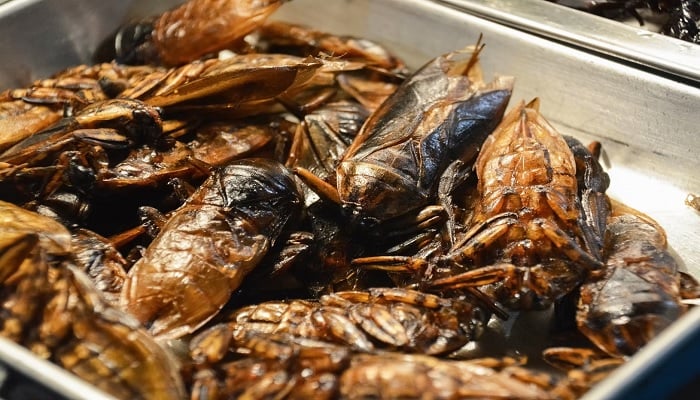Kids to be offered insects in schools to test eco-friendly meat substitutes
At least 2,000 insects in world have been identified as edible with high protein
May 31, 2022

- 2,000 insects in world have been identified as edible.
- Researchers plan to feed children from ages five to 11 some bugs.
- They will serve kids spaghetti sauce made with insects and plant proteins.
Academics from Cardiff University and the University of the West of England (UWE Bristol) are contemplating feeding insects like house crickets and mealworms to primary school children from four schools in Wales, reported Daily Mail.
While chicken nuggets and French Fries are the popular choices at school canteens, these researchers plan to feed children from ages five to 11 a different item.
Experts want to motivate parents to avoid meat and serve kids spaghetti sauce made with insects and plant proteins.
Researchers leading the project will also survey schools to find out primary school children's attitudes towards environmental issues.
Through the survey, they aim to find out ways in which younger people can be educated on the nutritional and environmental benefits of consuming insects and cutting meat consumption.
2,000 insects in the world have been identified as edible. Bugs are high in protein, for instance, black soldier fly larvae, mealworms, crickets, and locusts.
Experts believe they are sustainable substitutes for traditional sources of protein like meat.
Daily Mail reported that scientists want to reduce the world's carbon footprint. Production and consumption of meat-based products lead to the emission of 64 million tons of carbon dioxide.
If insects are used as a source of protein, it will reduce the required feed, land, and water, releasing fewer greenhouse gases.
In this project, they initially plan to offer food items containing crickets and mealworms.
"Young people’s voices are becoming increasingly prominent in discussions on environmental futures and animal welfare,' said Dr Chrisopher Bear from Cardiff University’s School of Geography and Planning.
"But there is still little research on how these values translate into food consumption attitudes and practices among children," he added.
He clarified: "To be absolutely clear, we are not trying to persuade children to switch from meat to things like edible insects."
Dr Verity Jones of UWE Bristol said: "While focusing on Wales, the findings and resources will speak to similar concerns and developments internationally."
Consumption of bugs is already popular and common in many areas of Asia, Latin America, and Africa.
Food Standards Agency (FSA) is currently examining house crickets for human consumption.











